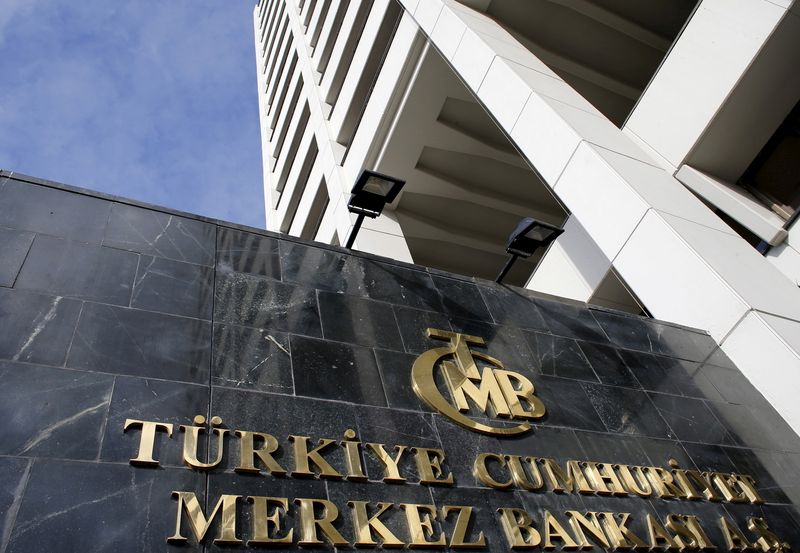By Nevzat Devranoglu
ANKARA (Reuters) - Turkey's central bank has been urging banks in recent weeks to avoid steps that could create demand for foreign currency as May elections loom, and to instead focus on new targets that involve monthly conversions of up to 5% of forex deposits to lira, bankers said.
The lira is at all-time intraday lows. It has weakened 2.4% against the dollar since a devastating earthquake on Feb. 6 and is edging lower as May 14 elections approach.
The central bank took steps last week to support its goal of boosting de-dollarisation, raising the ratio of securities that banks must maintain if their lira deposits amount to between 50% and 60% of their total deposits.
While bankers estimate that almost all the sector is above or close to the newly determined 60% conversion rate, all banks still have monthly targets to convert forex into lira.
Authorities have moved to clamp down on the forex market in recent years, discouraging foreign currency holdings as the central bank pursues an unorthodox policy of cutting interest rates despite high inflation.
One banker with information on the matter told Reuters that the central bank asked lenders to "avoid measures that would create demand for forex and focus on conversion of deposits to Turkish lira from foreign currency every month."
The central bank did not comment on the issue.
The sources requested anonymity in order to discuss private communications involving authorities.
A source from the private sector said he calculated that the central bank could receive a net reserve contribution of up to $5 billion every month for the next six months through these channels if all banks carried out the conversion. But in practice the contribution to reserves will be lower, he said.
On Wednesday the lira, which lost 30% of its value to the dollar last year and 44% in 2021, eased marginally to 19.3125. However many bankers, including foreign institutions, see the fair value of the lira in the 23-25 range.
According to bankers, expectations that the lira will weaken after the election alone is sufficient to create demand for foreign currency.
Another banker said the central bank's messages were perceived as a warning to lenders not to create obstacles to its forex policy in the coming months which include the elections, where President Tayyip Erdogan is facing the biggest political challenge of his two decades in power.
While the central bank can meet its foreign currency needs for import payments with export revenues, local foreign currency demand is restricted by regulations, such as requiring banks to buy treasury bonds that pay interest much lower than inflation.

The volume of long-term, low interest rate treasury bonds that the sector is required to hold has reached 350 billion lira and the banking sector has started to conduct stress tests on possible currency and interest rate shocks after the election.
Currently, the interest rate offered by banks for high volume lira deposits is around 32-33%. The rates on investment-oriented loans are close to single digits but businesses complain that they cannot access such loans.